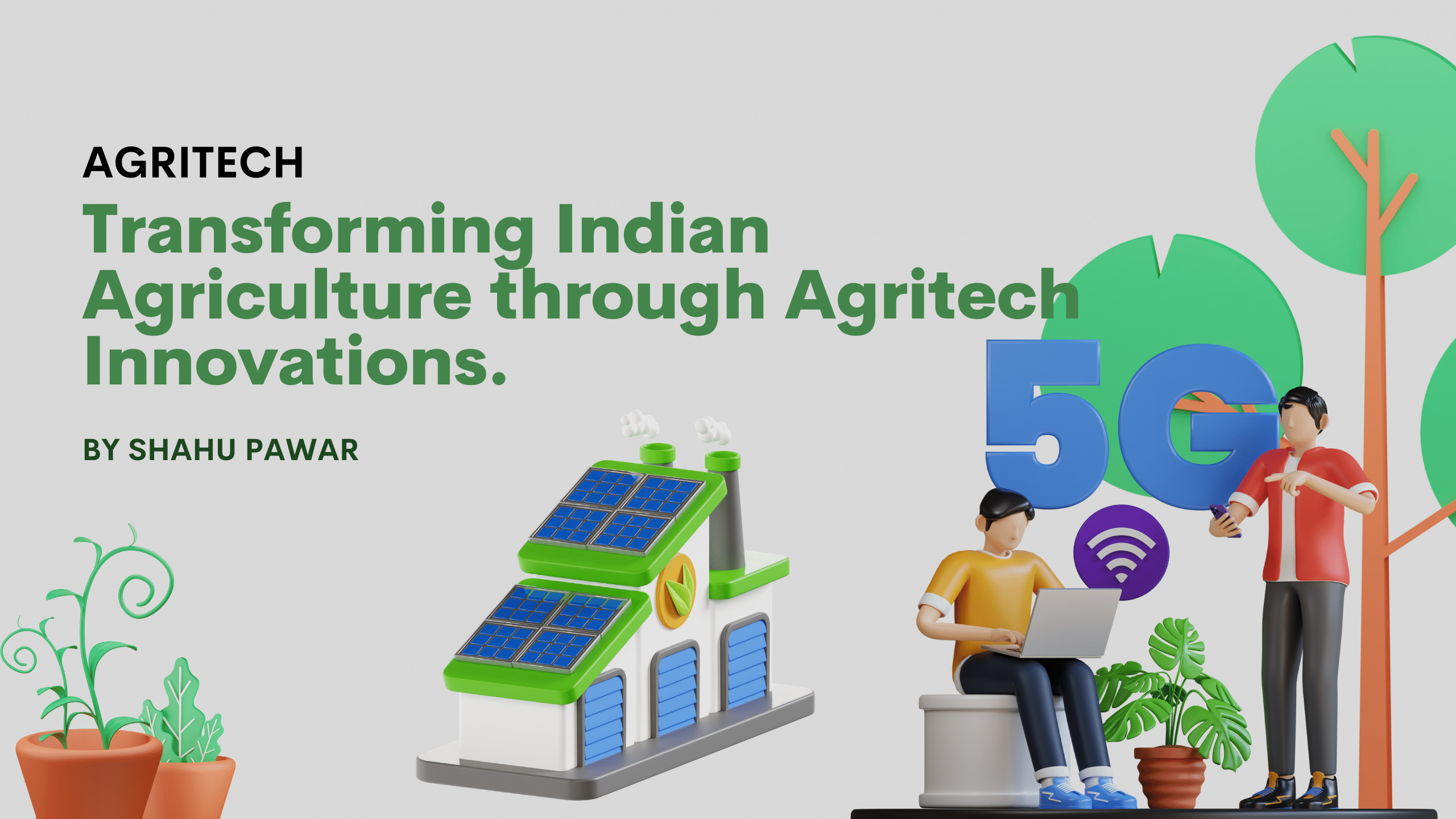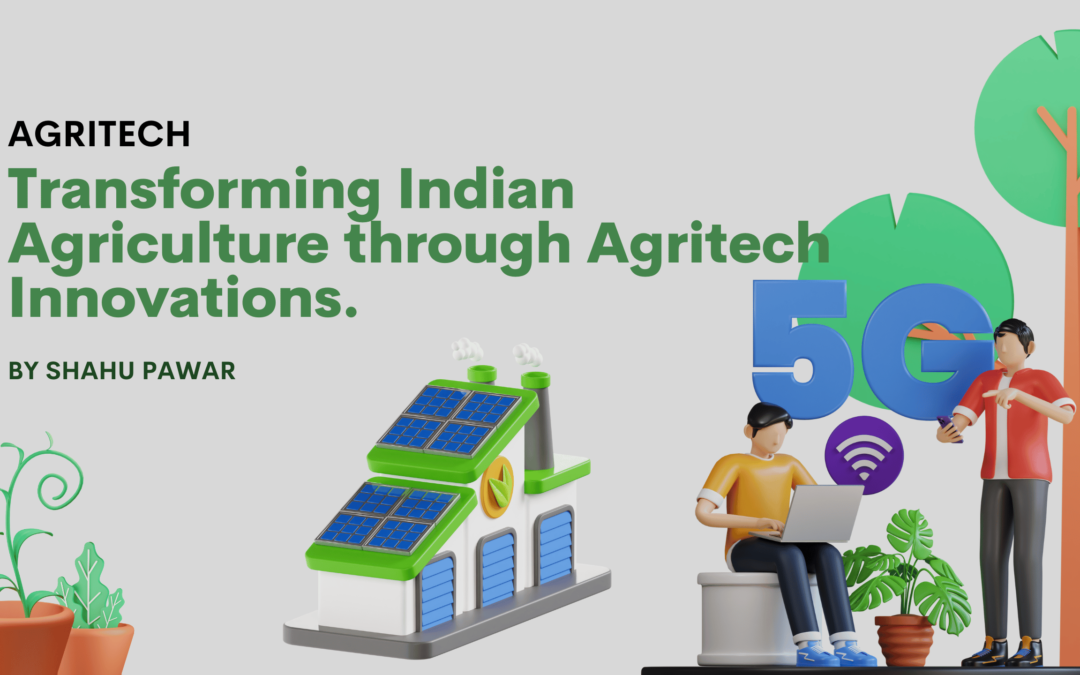Introduction:
Agriculture has always played a vital role in India’s economy, employing a significant portion of the population and contributing to food security. However, with the growing population and changing environmental conditions, there is a need for transformative measures to enhance agricultural productivity, sustainability, and efficiency. Agritech innovations are emerging as a game-changer in revolutionizing the Indian agriculture sector, offering advanced technological solutions to address various challenges. This article explores how agritech innovations are transforming Indian agriculture and driving positive change.

- Precision Farming: Precision farming techniques, enabled by agritech innovations, are revolutionizing traditional farming practices in India. Through the use of remote sensing, GPS technology, and data analytics, farmers can monitor and manage their crops with precision. This allows for optimized resource allocation, such as water, fertilizers, and pesticides, resulting in increased crop yields, reduced costs, and minimized environmental impact.
- Internet of Things (IoT) and Sensors: IoT devices and sensors are being employed in Indian agriculture to collect real-time data on soil moisture, temperature, humidity, and crop health. This data is used to make informed decisions regarding irrigation schedules, pest management, and fertilizer application. IoT-enabled smart farming systems enable farmers to monitor their fields remotely and take timely actions, leading to improved crop quality and yield.
- Artificial Intelligence (AI) and Machine Learning (ML): AI and ML technologies are empowering Indian farmers to make data-driven decisions. By analyzing vast amounts of agricultural data, AI algorithms can provide valuable insights on crop diseases, weather patterns, market trends, and optimal planting schedules. AI-powered tools also assist in crop disease identification, pest management, and yield predictions, allowing farmers to proactively address challenges and optimize their operations.
- Farm Management Software: Farm management software solutions are gaining popularity in India, enabling farmers to streamline their operations. These software platforms offer features such as crop planning, inventory management, financial tracking, and market intelligence. By digitizing and automating various tasks, farmers can improve their efficiency, reduce paperwork, and have better control over their farming operations.
- E-commerce and Digital Marketplaces: Agritech innovations have facilitated the emergence of e-commerce platforms and digital marketplaces specifically designed for agricultural products. These platforms connect farmers directly with buyers, eliminating intermediaries and enabling fairer pricing. Farmers gain access to a wider market, reducing post-harvest losses and ensuring better returns for their produce. Additionally, online platforms provide a wealth of information on market demand, pricing trends, and consumer preferences, enabling farmers to make informed decisions.
Conclusion:
Agritech innovations are transforming Indian agriculture by bringing advanced technologies and digital solutions to the farming community. Precision farming, IoT, AI, farm management software, and e-commerce platforms are revolutionizing traditional practices, enhancing productivity, and ensuring sustainability. By adopting these innovations, Indian farmers can overcome various challenges, increase their incomes, reduce resource wastage, and contribute to the country’s overall agricultural growth. As the agritech sector continues to evolve, it is crucial to promote awareness, access, and adoption of these innovations among farmers, ensuring inclusive and equitable benefits for all stakeholders involved in Indian agriculture.

